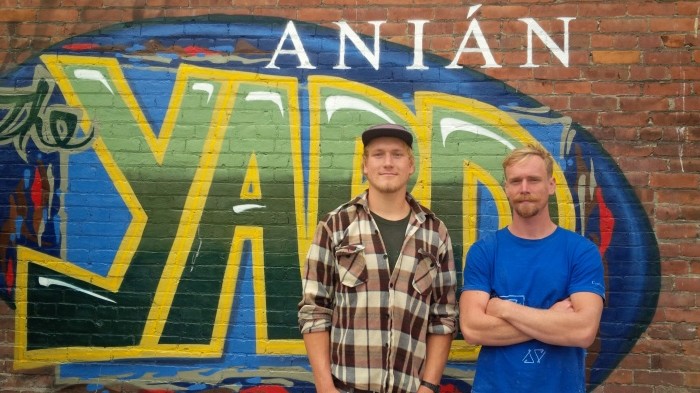Locally owned and operated, Anian is a Victoria surf shop that sells Canadian manufactured surfboards and clothing, and, if that’s not cool enough, they are also currently in the research and development stage of manufacturing their own wetsuits. But what makes Anian truly unique is how they source their power: solar energy.
Anian, founded in 2013, initially faced the hefty price tag of at least $5,000 to install a power hookup in their industrial lot location at 516 Discovery Street. Understandably, the hefty cost of tapping into the grid made owner Nick Van Buren think about alternative sources of power.

After some research, Van Buren was able to find an option that worked for him: an entire solar-power system for $1000, a fraction of the hookup charges.
“We just need to upgrade and get a better system, then we are off the grid and there is no power bill,” says Van Buren. “And we’re breaking ground by running a store that’s off the grid.”
Anian began construction in 2013 on a 2,000-square-foot lot in downtown Victoria. Three very small buildings, five solar panels, one battery bank, and a pure cell inverter later, they were in business. Van Buren’s brother, Peter, currently in his second year of Camosun’s Environmental Technology program, was instrumental in the design and construction of the shop and is Anian’s lone employee.
According to Statistics Canada, the average Canadian household uses 30,420 watt-hours per day. In comparison, Anian’s current power consumption is equal to 875 watt-hours, which means they are quite limited in what they can do with their available power.
With their current solar-power system, they can run four lights continuously, but for the construction of surfboards and occasional power-tool usage, other power sources are needed. For obvious reasons, they are hoping to upgrade the system.
Additionally, the power generated by the solar panels is difficult to maximize, says Van Buren.
“The tricky thing about solar panels is they’re designed to convert a certain amount of energy, but if you don’t have a perfect system or exactly the right grade of cables, you won’t,” he says. “You’re not actually running on panels; you’re running on batteries, and the panels are recharging the batteries. If you have any problems with your batteries or cables, you’re losing energy at every connecting point. The whole system has to be really well put together to work properly.”
Anian is currently running a campaign at anianmfg.com in an attempt to raise money to upgrade their current solar-panel system.
